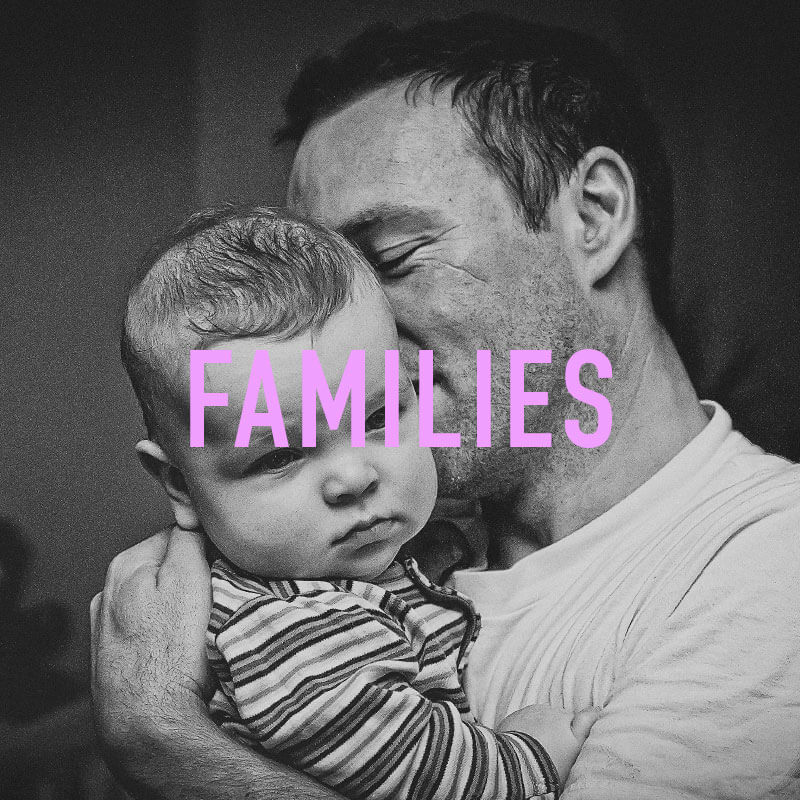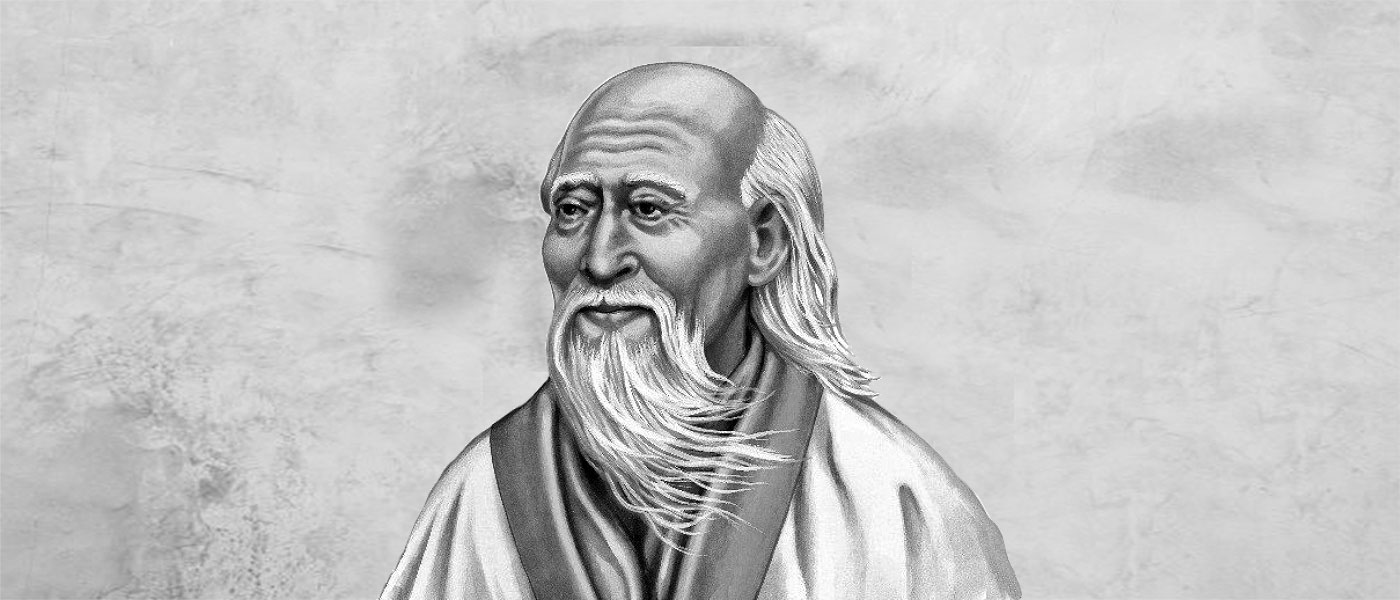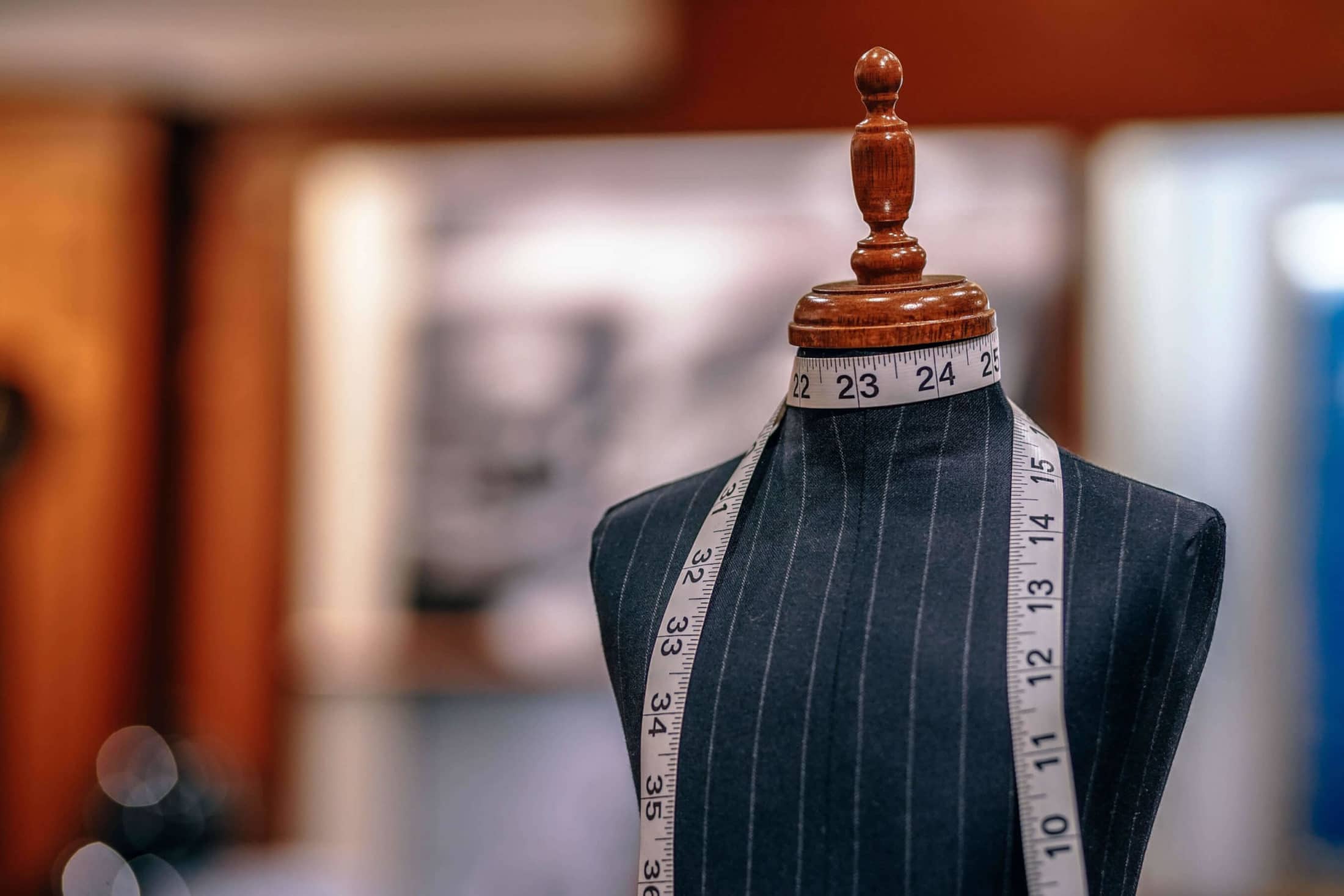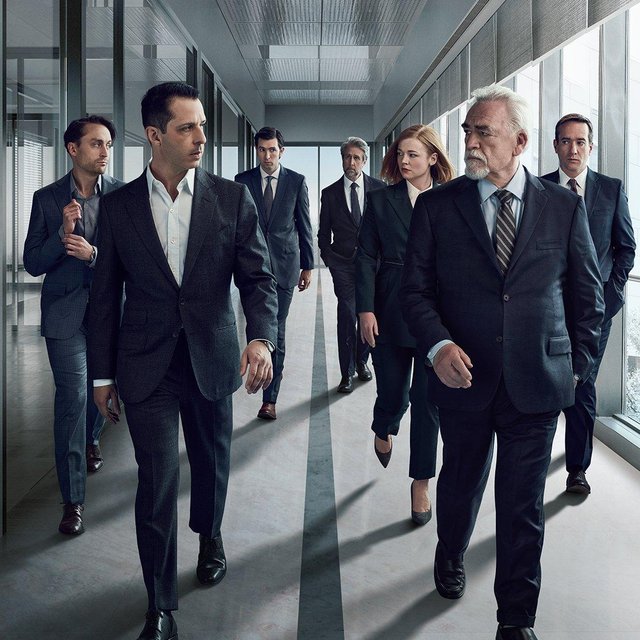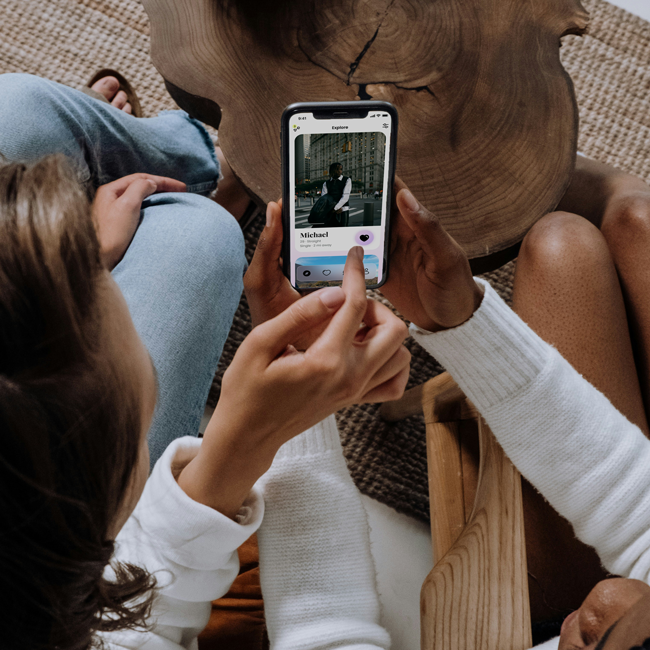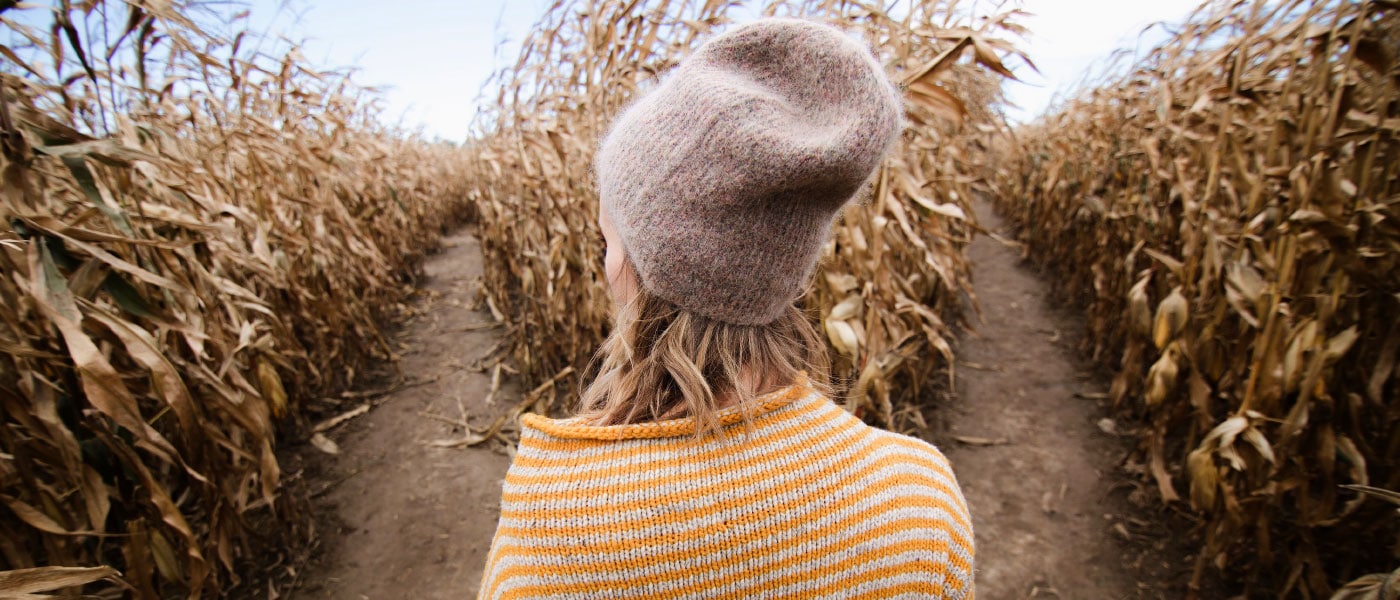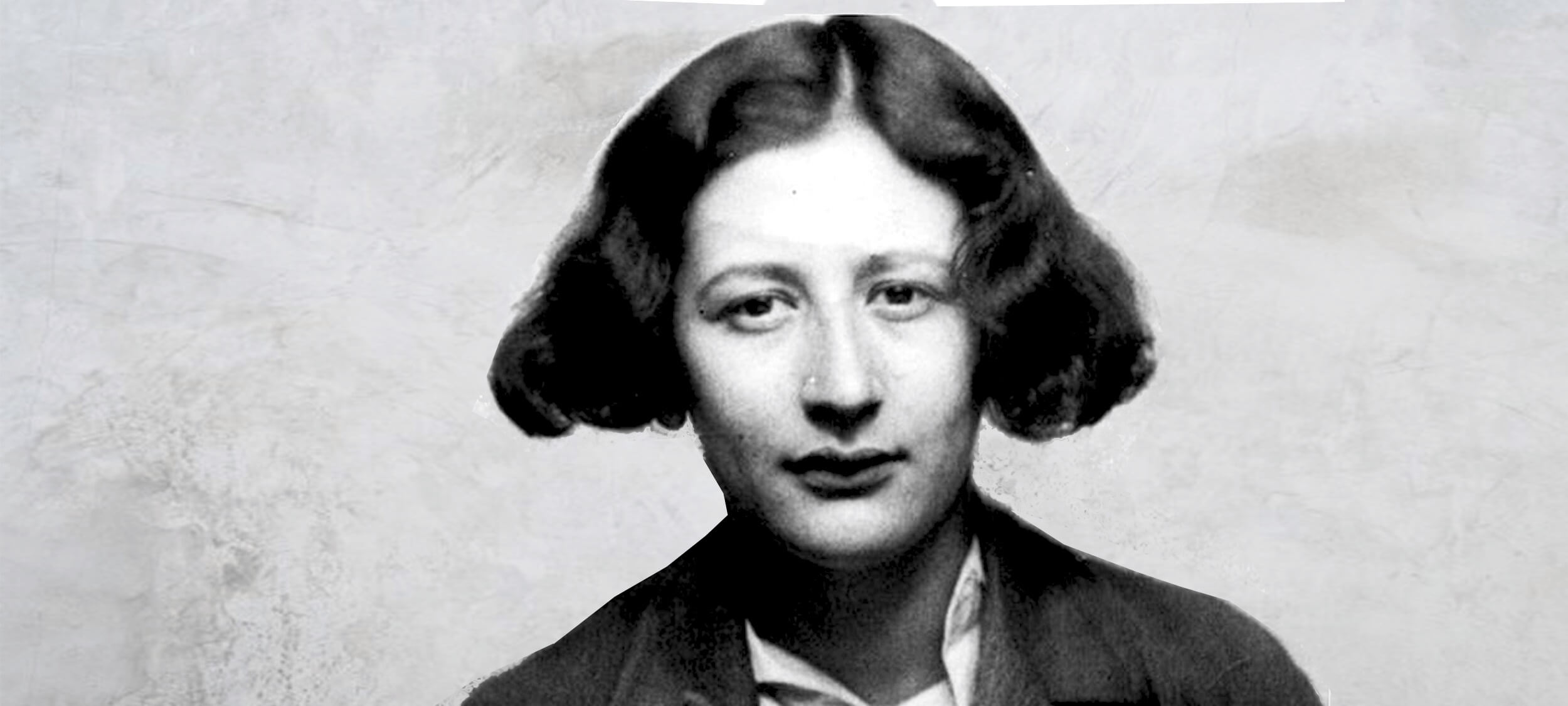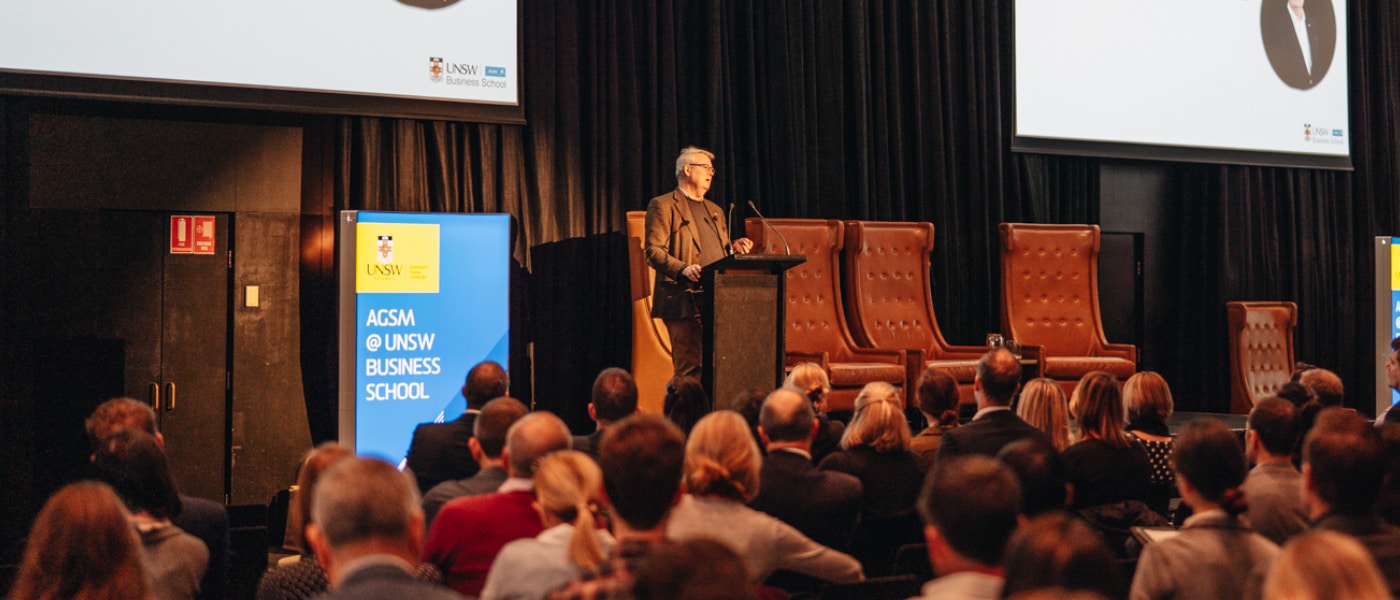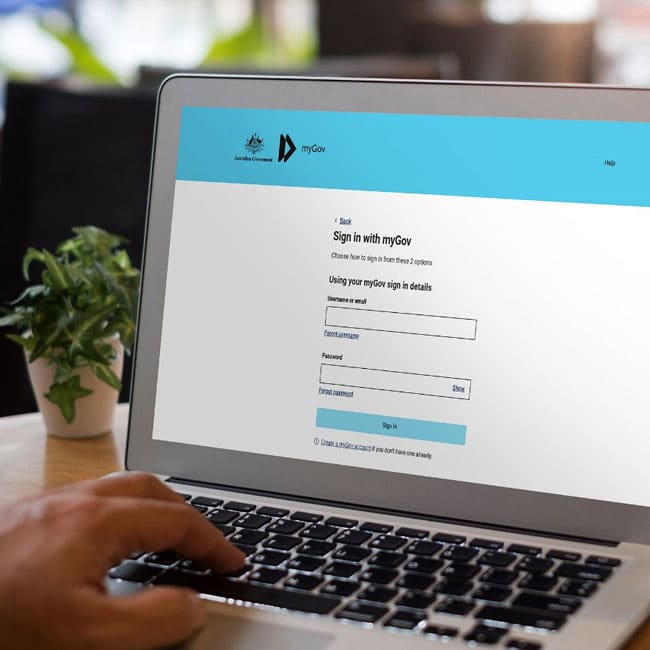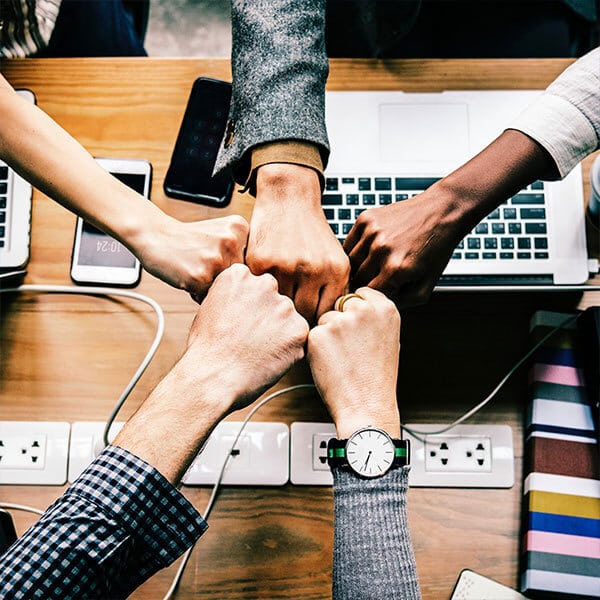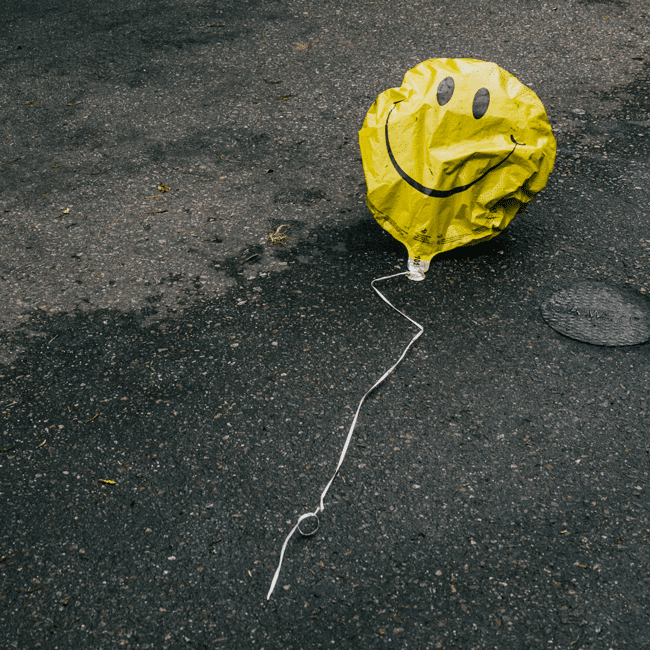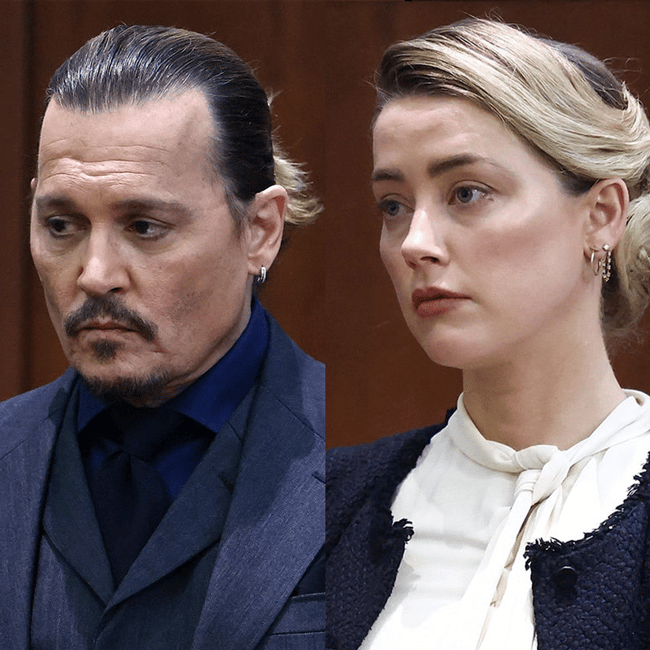5 ethical life hacks

5 ethical life hacks
Opinion + AnalysisHealth + WellbeingRelationships
BY The Ethics Centre 11 JAN 2017
It’s not all tough decisions – walking, sleeping and reading are some ways you can seamlessly strengthen your ethical muscles every day. Here are some activities that can help refine your ethics while you’re busy in your day-to-day life.
Get back to nature
Aristotle believed everything in nature contains “something of the marvellous”. It turns out nature might also help make us a bit more marvellous. Research by Jia Wei Zhang and colleagues revealed how “perceiving natural beauty” (basically, looking at nature and recognising how wonderful it is) can make you more prosocial. Specifically, it can make you more helpful, trusting and generous. Nice one, trees.
The apparent reason for this is because a connection with nature leads to heightened positive emotions. People are happier when they are connected with nature and other research suggests happy people tend to be more prosocial. Inadvertently, as Zhang and his colleagues learned, this means nature helps make us better team players.
Read literature to develop ‘Theory of Mind’
In psychology, ‘Theory of Mind’ refers to the ability to understand the emotions, intentions and mental states of other people and to understand that other people’s mental states are different from our own, which is a crucial component of empathy. Like most things, our Theory of Mind improves with practice.
David Comer Kidd and Emanuele Castano think one way of practising and developing Theory of Mind is by reading literary fiction. They believe literature “uniquely engages the psychological processes needed to gain access to characters’ subjective experiences” because it doesn’t aim to entertain readers but challenge them.
Work up a sweat
As well as the health benefits it brings, exercise can make you a more virtuous person. Philosopher Damon Young believes exercise brings about “subtle changes to our character: we are more proud, humble, generous or constant”.
Pride is usually seen as a vice but exercise can give us a healthy sense of pride, which Young defines as “taking pleasure in yourself”. Taking pleasure in ourselves and recognising ourselves as valuable has obvious benefits for self-esteem, but it also gives us a heightened sense of responsibility. By taking pride in the work we’ve invested in ourselves, we acknowledge the role we have making change in the world, a feeling with applications far broader than the gym.
Take meal breaks when you’re making decisions
In 2011, an Israeli parole board had to consider several cases on the same day. Among them were two Arab-Israelis, each of them serving 30 months for fraud. One of them received parole, the other didn’t. The only difference? One of their hearings was at the start of the day, the other at the end.
Researcher Shai Danzigner and co-authors concluded “decision fatigue” explained the difference in the judges’ decisions. They found the rate of favourable rulings were around 65% just after meal breaks at the start of the day and lunch time, but they diminished to 0% by the end of the session.
There’s some good news though. The research suggests a meal break can put your decision making back on track. Maybe it’s time to stop taking lunch at your desk.
Get a good night’s sleep
We’ve been starting to pay more attention to the social costs of exhaustion. In NSW, public awareness campaigns now list fatigue as one of the ‘big three’ factors in road fatalities alongside speeding and drunk driving. It turns out even if it doesn’t kill you, exhaustion can lead to ethical compromises and slip ups in the workplace.
In 2011, Christopher Barnes and his colleagues released a study suggesting “employees are less likely to resist the temptation to engage in unethical behaviour when they are low on sleep”. When we’re tired we experience ‘ego depletion’ that weakens our self-control. Experiments conducted by Barnes’ team suggest when we’re tired we’re vulnerable to cutting corners and cheating. So, if you’re thinking of doing something dodgy, sleep on it first.
Ethics in your inbox.
Get the latest inspiration, intelligence, events & more.
By signing up you agree to our privacy policy
You might be interested in…
Opinion + Analysis
Climate + Environment, Health + Wellbeing, Society + Culture
Melbourne Cup: The Ethical Form Guide
Opinion + Analysis
Politics + Human Rights, Relationships
Who’s your daddy?
Big thinker
Relationships
Big Thinkers: Laozi and Zhuangzi
Explainer
Relationships
Ethics Explainer: The Sunlight Test
BY The Ethics Centre
The Ethics Centre is a not-for-profit organisation developing innovative programs, services and experiences, designed to bring ethics to the centre of professional and personal life.
You are more than your job

You are more than your job
Opinion + AnalysisHealth + WellbeingRelationships
BY Simon Longstaff The Ethics Centre 20 DEC 2016
There are many ways we define our personal identity. Often, we define it by the roles we play in life.
We might think of ourselves as a child, parent, sibling, spouse, lover, friend… It is remarkable how we integrate all these different roles and relationships into our own, singular person.
People may often identify themselves according to their work. It’s been happening throughout history, as we can hear in occupational surnames such as Carpenter, Carter, Baker and Wheeler. We even link our identity with what we do for bureaucratic reasons. For example, every traveller is required to state their occupation when departing from or arriving in Australia.
Personal value has shifted focus from our character, personality, and relationships, to our role or place in society. It is no longer a question of who we are but what we do.
Casual conversations, too, eventually veer towards the question, “what do you do?” But a few years ago, I noticed the response to the question “How are you?” was changing from “I’m well” to “I’m busy”. I wondered what lay behind this altered response. What were they trying to say?
I concluded that the words “I am busy” are a proxy for “I am valued/needed”. My worth is affirmed by the fact I am in demand to the point of being busy.
If I’m correct, this marks a subtle but important change. Personal value has problematically shifted focus from our character, personality and relationships to our role or place in society. It is no longer a question of who we are but what we do.
Perhaps we should reflect on some of the deeper questions to do with identity, meaning and value.
For the most part, we might not notice this change in emphasis. However, if what I suspect is true, a holiday such as the enforced Christmas vacation could be a period of stress and dislocation for people who define themselves by their work – especially if they live alone and are without family or friends.
For some people, a job is not only a source of identity, it may also be their principal social environment, providing a regular opportunity for human contact. For such people, being deprived of this context can be a profound loss. To be ‘on leave’ is to be cut off from their principal source of identity.
Those of us with established social networks could help by reaching out to such people and making sure they’re included in holiday celebrations. Among other things, this sends a signal that the person is valued for more than their work.
Work-focused individuals could also volunteer with charities during the holiday season. This would provide a readymade social context and a valuable, alternative source of meaning and identity.
However, especially at Christmas time, perhaps we should reflect on some of the deeper questions dealing with identity, meaning and value. At the heart of ethics is a belief in the intrinsic worth of every person – irrespective of their gender, race, religion, sexuality… or job.
Ethics in your inbox.
Get the latest inspiration, intelligence, events & more.
By signing up you agree to our privacy policy
You might be interested in…
Opinion + Analysis
Health + Wellbeing, Relationships
To live well, make peace with death
Opinion + Analysis
Relationships, Politics + Human Rights
How to have a difficult conversation about war
Opinion + Analysis
Health + Wellbeing
Why leisure matters for a good life, according to Aristotle
Opinion + Analysis
Relationships
Online grief and the digital dead
BY Simon Longstaff
Simon Longstaff began his working life on Groote Eylandt in the Northern Territory of Australia. He is proud of his kinship ties to the Anindilyakwa people. After a period studying law in Sydney and teaching in Tasmania, he pursued postgraduate studies as a Member of Magdalene College, Cambridge. In 1991, Simon commenced his work as the first Executive Director of The Ethics Centre. In 2013, he was made an officer of the Order of Australia (AO) for “distinguished service to the community through the promotion of ethical standards in governance and business, to improving corporate responsibility, and to philosophy.” Simon is an Adjunct Professor of the Australian Graduate School of Management at UNSW, a Fellow of CPA Australia, the Royal Society of NSW and the Australian Risk Policy Institute.
BY The Ethics Centre
The Ethics Centre is a not-for-profit organisation developing innovative programs, services and experiences, designed to bring ethics to the centre of professional and personal life.
The etiquette of gift giving

The etiquette of gift giving
Opinion + AnalysisHealth + WellbeingRelationships
BY Ruth Quibell The Ethics Centre 14 DEC 2016
I enjoy giving gifts, especially for my children. It’s an opportunity to think about them, who they are now and how they’re developing.
I want the gift I choose to be liked by the person who receives it but I also expect it to do other things. Does this gift tell them they are understood? Loved? Appreciated? Does it reflect our relationship? It’s a bit of a gamble and is easy to get wrong, which is why I’m often a little freer with spending my money and time on a gift than I am usually.
This deeply personal way of thinking about gifts isn’t unusual but it overlooks the shared, ritualised aspects of gift exchange. In childhood we learn a polite dance of expectation and obligation. Even though gift-giving is meant to be spontaneous and honest, it follows a predictable script of performed generosity and gratitude.
In Brooklyn Nine-Nine, the dramatic Gina offers a great example of this. She secretly opens all her presents in advance so she can rehearse her ‘opening’ expressions for later.
A gift might be given freely and without coercion, but it doesn’t come without basic obligations for the receiver of the gift: to accept the gift, to express gratitude, to reciprocate. While a gift might express or help reinforce a relationship, the giver’s intention alone is no guarantee of success.
‘Charity gifts’ like providing clean water for a community overseas are undoubtedly well motivated, but do they serve the same purpose as traditional gift giving?
The rise of ‘charity gifts’ interrupts our usual expectations of a gift as an exchange between two people or families that is motivated by a relationship. Interestingly, by donating money to a charity in another’s name the ordinary social expectations of giving are preserved. The relationship between giver and the nominal recipient of the gift might even be bolstered without any tangible exchange occurring between them.
The ultimate recipient of the gift might benefit from it but they are receiving anonymous charity rather than a gift. You might even argue that they are part of the gift being given. For those considering ‘charity gifts’, it’s worth asking: what are you giving, to who, and why?
You’re unwrapping a present, surrounded by family when you unveil the most garish, knitted socks from great Aunty Mavis. Do you have to keep them? Are you obliged to wear them?
This situation makes the tacit expectations around how to receive gifts more overt. We don’t know much about great Aunty Mavis’s motivations. She might have simply enjoyed knitting the socks and have little interest in our feelings about them. The situation requires what sociologist David Ekerdt calls an “act of reception”. Without it, Mavis’s gift giving gesture will hang in the air like an unshaken hand.
A common response, I suspect, to avoid an uncomfortable situation would be to graciously accept the gift without giving offence, and then to quietly dispose of it later. Think Colin Firth’s character wearing the Christmas themed jumper in Bridget Jones.
Of course, there’s a choice here. I’d probably put the socks on immediately and see what I could discover about them and myself, but I wouldn’t pretend to like them if I didn’t.
Children are often encouraged to write ‘Christmas lists’ and send them to Santa. Later in life, lots of people are explicit in the gifts they want to receive for Christmas or birthdays. Do these trends encourage us to think about gift giving in a different way?
As I write this, my almost eight year old has stuck a sizeable birthday list on the fridge. She wants these things but she also wants me to understand her. Her list is an attempt to ensure I don’t get her wrong. The list is important, but as her parent I don’t only want to give her the things she wants. This is where gifts differ from simply an exchange of money for goods in the market. Gifts entail risky choices and unpredictable receptions.
It feels as though there’s a tension between the act of giving a gift itself, which is an act of generosity, and the general climate of the season, which seems more self-interested. Is that tension inescapable?
Gift giving usually has a dose of both. We give because we want to, but also because we expect something in return. Even if we don’t expect the straightforward exchange of a gift in return, we might hope for a stronger relationship, to be held high in someone’s opinion, or simply to be appreciated as kind, thoughtful or generous.
To be clear, this is not the same variety of self-interest as the stereotypical selfish consumer always hungry for more. It’s self-interest, yet I don’t think there’s anything particularly wrong in wanting our lives to be good with caring relationships. Perhaps when it comes to choosing a gift, we don’t need to be so quick to disown having a pinch or two of self-interest in the gift-giving game. It might even lead to a better choice of gift than great Aunty Mavis’s socks.
Ethics in your inbox.
Get the latest inspiration, intelligence, events & more.
By signing up you agree to our privacy policy
You might be interested in…
Opinion + Analysis
Climate + Environment, Relationships
Care is a relationship: Exploring climate distress and what it means for place, self and community
Opinion + Analysis
Relationships
The ANZAC day lie
Opinion + Analysis
Climate + Environment, Health + Wellbeing, Society + Culture
Melbourne Cup: The Ethical Form Guide
Opinion + Analysis
Health + Wellbeing, Relationships
Pop Culture and the Limits of Social Engineering
BY Ruth Quibell
Ruth Quibell is a sociologist based in Melbourne. Her most recent book is The Promise of Things.
BY The Ethics Centre
The Ethics Centre is a not-for-profit organisation developing innovative programs, services and experiences, designed to bring ethics to the centre of professional and personal life.
Confirmation bias: ignoring the facts we don’t fancy

Confirmation bias: ignoring the facts we don’t fancy
Opinion + AnalysisHealth + WellbeingRelationships
BY John Neil The Ethics Centre 7 DEC 2016
We all like to believe we’re careful thinkers who gather and evaluate facts before making a decision. Unfortunately, we’re not.
We tend to seek information we find favourable and which supports what we already think. In short, we reach a conclusion first, then test it against evidence, rather than gather evidence first and evaluate it to make a conclusion.
This is called confirmation bias, which is a type of cognitive bias (like the bandwagon effect, or the availability heuristic) in which we tend to notice or search out information that confirms what we already believe or would like to believe. To avoid the discomfort of finding information that doesn’t support our views or ideas, we will discount or disregard evidence that’s contrary to our beliefs or preferences.
This plays out in similar ways across a range of contexts. In the sciences, theories are developed through falsifying and supporting evidence. Researchers need to recognise their own potential confirmation biases that come with holding a strong view or belief in the face of other evidence.
Confirmation bias plays out both in a range of research disciplines and our everyday decision making. When we research brands or products we tend to seek out information that reinforces our tastes and preferences. For instance, being drawn to reviews favouring brands we already like.
Confirmation bias is also at play in more significant life decisions like superannuation and other investment choices. Often, the greater the significance of a decision, the greater the likelihood that confirmation bias will be in play. If we don’t want to be left behind when we hear friends or colleagues talking about how well an investment is doing, our research will be strongly influenced by the story of our friend’s success. In doing so, we may filter out information that raises red flags and instead focus on the information validating the investment.
Our technology comes full with confirmation bias. Social media news feeds and online sources are ready made filters of information from people who think like us. Paradoxically, the tools and technologies that make information so accessible heighten the likelihood of us being drawn into information loops which reinforce what we think we know. As Warren Buffett famously remarked, “What the human being is best at doing is interpreting all new information so that their prior conclusions remain intact”.
Like several other biases, confirmation biases are an example of ‘motivated reasoning’. Motivated reasoning describes how our judgments are consciously and unconsciously influenced by what we think we know. This shapes how we think about our health, our relationships, how we decide how to vote and what we consider fair or ethical.
Ethics in your inbox.
Get the latest inspiration, intelligence, events & more.
By signing up you agree to our privacy policy
You might be interested in…
Opinion + Analysis
Relationships, Society + Culture
A parade of vices: Which Succession horror story are you?
Opinion + Analysis
Relationships
Ask an ethicist: How much should politics influence my dating decisions?
Opinion + Analysis
Relationships
What is the definition of Free Will ethics?
Opinion + Analysis
Climate + Environment, Politics + Human Rights, Relationships
This is what comes after climate grief
BY John Neil
As Director of Education and Innovation at The Ethics Centre, John collaborates closely with a talented team of specialists and subject matter experts to shape the tools, frameworks, and programs that drive our work forward. He brings a rich and varied background as a consultant, lecturer, and researcher, with expertise spanning ethics, cultural studies, sustainability, and innovation. This multidisciplinary perspective allows him to introduce fresh, thought-provoking approaches that energise and inspire our initiatives. John has partnered with some of Australia’s largest organisations across diverse industries, to place ethics at the heart of organisational life. His work focuses on education, cultural alignment, and leadership development to foster meaningful and lasting impact.
BY The Ethics Centre
The Ethics Centre is a not-for-profit organisation developing innovative programs, services and experiences, designed to bring ethics to the centre of professional and personal life.
Ask me tell me: Why women think it’s ok to lie about contraception

Ask me tell me: Why women think it’s ok to lie about contraception
Opinion + AnalysisHealth + WellbeingRelationships
BY The Ethics Centre 6 DEC 2016
‘Ask Me, Tell Me’ is a series created by you. You told us what you want to talk about by contributing your thoughts to an interactive artwork at the Festival of Dangerous Ideas.
This week: what happens to sex when people can’t trust each other? We look at the ethics and politics of sex.
Sexual ethics is prickly business. For the sake of exploring your contribution dear FODI patron, let’s assume you’re a man who has been lied to by a now pregnant woman who said she couldn’t conceive because she was using contraception.
Speaking of assumptions, it’s easy to assume our personal experiences are common, particularly big, life-changing ones like this. Experience is after all the key learning module in the school of life. But an assessment of the world based on our own experiences or one-off things we see, no matter how prominently they feature in our lives, is not exactly objective (although it’s a common cognitive bias we all can slip into).
Seeing ‘women’ as a group who lie to get pregnant isn’t a fair assessment of all women. Like every other group in society that shares some sort of common ground, women don’t think the same way or collectively decide what’s ethical and what’s not.
Also, there’s not much evidence to support this being a common practice of women other than a poll by That’s Life! magazine.
Nevertheless, none of this is to deny what we’re assuming has happened to you. It’s just pointing out it’s unlikely to be a prevalent phenomenon.
…men could choose to have no legal rights or responsibilities to a child as a way of correcting the alleged power imbalance in which men are held accountable as parents even if they would have preferred a pregnancy be terminated.
Whether or not it’s common for women to fib about using contraception to get pregnant doesn’t change the extent to which you must feel betrayed, trapped, angry and lied to. You’re facing the prospect of a lifelong commitment you believed wasn’t on the cards. Can anything be done about it?
There are a couple of ways to prevent others from finding themselves in the same situation. A Swedish group recently campaigned to give men the right to ‘legally abort’ from children. Under the proposal, men could choose to have no legal rights or responsibilities to a child as a way of correcting an alleged power imbalance that holds men accountable as dads even if they never wanted to be one.
‘Legal abortions’ don’t seem to actually be legal anywhere in the world but the argument in favour of them is that they level the playing field. Many of course would see women as the ones bearing more of the challenges of unwanted pregnancies than men, given they’re the ones who have to carry and give birth to the child.
Nevertheless, ‘legal abortions’ is an idea several thinkers, often women, have been discussing for a while.
Sex is risky – not only because of the possibility of children or infection – but because it leaves us physically and emotionally vulnerable.
An easier option would be for men to take contraception into their own hands. Condoms have been available for a long time. They’re 98% effective, prevent sexually transmitted infections and tend to be cheaper than female methods. And in years to come, a male contraceptive pill may well be available – a promising trial study of a male pill was abandoned due to side effects.
However, trust has become an issue here as well, with some women not having faith in men to take care of contraception. The Guardian columnist Barbara Ellen describes this as “the relentless howl of distrust between the sexes, echoing down the years”. Perhaps the best solution is one in which both men and women use contraception.
In many ways, this is a neat solution but can we really use technology as a substitute for sexual trust? Or, if men and women are doomed to distrust one another as Ellen suggests, what are the consequences of sex without trust? We trust sexual partners to use protection and contraception. We trust them to be concerned for our pleasure as well as theirs, to recognise our boundaries and seek our consent before doing anything to us or demanding anything from us, to respect our privacy and so on. At the heart of all of this is the understanding that sex is risky – not only because of the possibility of babies and infection – but because it leaves us physically and emotionally vulnerable.
Philosopher LA Paul describes becoming a parent as a ‘transformative experience’ – an experience that changes who we are so fundamentally it’s impossible to know whether the person we will become will regret our decision or not.
None of this gives you, FODI punter, much to go on with. You’ve been lied to, you’re facing long term consequences as a result and now you have to choose what kind of parent you want to be. And because you were lied to you’ve been put in this position unjustly and against your will, which is wrong by almost any measure.
Unfortunately, you still have to decide what to do. Philosopher LA Paul describes becoming a parent as a ‘transformative experience’ – an experience that changes who we are so fundamentally it’s impossible to know whether the person we will become will regret our decision or not. By definition, we can’t know what the right thing to do is.
Paul thinks this is true for all parents, not just those facing unwanted pregnancies. Even though there’s not much guidance on what you should do in this situation, it might be reassuring to know every potential parent is facing the same impossible decision. In the end, Paul suggests the best way to make this decision is to base it on what we want to discover, not what we think we’d enjoy.
And if you’re still stuck, you can always contact Ethi-call – The Ethics Centre’s free helpline – where you can speak with one of our counsellors to help make a decision aligned with your own values, principles and conscience.
Follow The Ethics Centre on Twitter, Facebook and Instagram.
Ethics in your inbox.
Get the latest inspiration, intelligence, events & more.
By signing up you agree to our privacy policy
You might be interested in…
Opinion + Analysis
Health + Wellbeing
How to live a good life
Opinion + Analysis
Health + Wellbeing, Relationships
How to deal with people who aren’t doing their bit to flatten the curve
Opinion + Analysis
Relationships, Society + Culture
Breakdowns and breakups: Euphoria and the moral responsibility of artists
Big thinker
Relationships
Big Thinker: Simone Weil
BY The Ethics Centre
The Ethics Centre is a not-for-profit organisation developing innovative programs, services and experiences, designed to bring ethics to the centre of professional and personal life.
Ethics Explainer: The Harm Principle

Ethics Explainer: The Harm Principle
ExplainerPolitics + Human RightsRelationships
BY The Ethics Centre 27 OCT 2016
The harm principle says people should be free to act however they wish unless their actions cause harm to somebody else.
The principle is a central tenet of the political philosophy known as liberalism and was first proposed by English philosopher John Stuart Mill.
The harm principle is not designed to guide the actions of individuals but to restrict the scope of criminal law and government restrictions of personal liberty.
For Mill – and the many politicians, philosophers and legal theorists who have agreed with him – social disapproval or dislike (“mere offence”) for a person’s actions isn’t enough to justify intervention by government unless they actually harm or pose a significant threat to someone.
The phrase “Your freedom to swing your fist ends where my nose begins” captures the general sentiment of the principle, which is why it’s usually linked to the idea of “negative rights”. These are demands someone not do something to you. For example, we have a negative right to not be assaulted.
On the other hand, “positive rights” demand that others do certain things for us, like provide healthcare or treat us with basic respect. For this reason, the principle is often used in political debates to discuss the limitations of state power.
There’s no issue with actions that are harmful to the individual themselves. If you want to smoke, drink, or use drugs to excess, you should be free to do so. But if you get behind the wheel of a car while under the influence, pass second-hand smoke onto other people, or become violent on certain drugs, then there’s good reason for the government to get involved.
Attempting to define harm
The sticking point comes in trying to define what counts as harmful. Although it might seem obvious, it’s actually not that easy. For example, if you benefit by winning a promotion at work while other applicants lose out, does this count as being harmful to them?
Mill would argue no. He defines harms as wrongful setbacks to interests to which people have rights. He would argue you wouldn’t be harming anyone by winning a promotion because although their interests are set back, no particular person has a right to a promotion. If it’s earned on merit, then it’s fair. “May the best person win”, so to say.
A more difficult category concerns harmful speech. For Mill, you do not have the right to incite violence – this is obviously harmful as it physically hurts and injures. However, he says you do have the right to offend other people – having your feelings hurt doesn’t count as harm.
Recent debates have questioned this and claim that certain kinds of speech can be as damaging psychologically as a physical attack – either because they’re personally insulting or because they entrench established power dynamics and oppress minorities.
Importantly, Mill believed the harm principle only applied to people who are able to exercise their freedom responsibly. For instance, paternalism over children was acceptable since children are not fully capable of responsibly exercising freedom, but paternalism over fully autonomous adults was not.
Unfortunately, he also thought these measures were appropriate to use against “barbarians”, by which he meant non-Europeans in British colonies like India.
This highlights an important point about the harm principle: the basis for determining who is worthy or capable of exercising their freedom can be subject to personal, cultural or political bias. When making decisions about rights and responsibilities, we should be ever careful about the potential biases that inform who or what we apply them to.
Ethics in your inbox.
Get the latest inspiration, intelligence, events & more.
By signing up you agree to our privacy policy
You might be interested in…
Opinion + Analysis
Health + Wellbeing, Relationships
To live well, make peace with death
Opinion + Analysis
Politics + Human Rights
Where do ethics and politics meet?
Opinion + Analysis
Relationships, Society + Culture
Inside The Mind Of FODI Festival Director Danielle Harvey
Opinion + Analysis
Relationships
Ask an ethicist: How do I get through Christmas without arguing with my family about politics?
BY The Ethics Centre
The Ethics Centre is a not-for-profit organisation developing innovative programs, services and experiences, designed to bring ethics to the centre of professional and personal life.
The complex ethics of online memes

The complex ethics of online memes
Opinion + AnalysisRelationshipsScience + Technology
BY Whitney Phillips The Ethics Centre 26 OCT 2016
Online jokes and play aren’t the same as the kinds you’d enjoy in your living room.
Despite the widespread assumption that what happens online is somehow less serious or real than “IRL” experiences, online humour can actually be more ethically fraught than offline playfulness – which unfortunately, might spoil some of the fun of internet memes.
Although the behaviours themselves might be similar on and offline, internet memes (believe it or not, there are offline memes as well) and other digital content can travel further, be decontextualised more quickly, and accessed instantaneously by millions of people, with the click of a link – without the original creator’s consent or even awareness. Each of these people, even further removed from the story, are then able to continue tinkering with the content in a number of ways and for a number of ends. This kind of play can be every bit as creative, social, and unifying for some as it is destructive, antagonistic, and alienating for the others.
The Harambe case demonstrates two of the most pressing ethical concerns in internet culture: amplification and fetishisation.
Take the Harambe meme, for example. Harambe was a Western lowland gorilla at the Cincinnati Zoo and was shot and killed by a zookeeper in May after a child fell into his enclosure. In response, countless online participants began creating and sharing Harambe content, ranging from photoshopped pictures to catchphrases to satirical hashtags. Just like that, the Harambe meme was born.
Some of these iterations were absurdist and silly, showing Harambe as a lumbering angel in heaven. Some focused on the injustice of Harambe’s killing, since the gorilla hadn’t actually harmed the child.
And some veered into harassing, explicitly racist territory – for instance, when images of the gorilla were used to taunt and harass black American actress Leslie Jones. Journalistic coverage of Jones’ harassment and its connection to the Harambe meme imbued the broader story with an indelible tinge of ugliness.
As well as demonstrating a meme’s ability to communicate a range of messages, the Harambe case demonstrates two of the most pressing ethical concerns in internet culture: amplification and fetishisation.
Do potential benefits like calling attention to injustice, for example, or naming and shaming antagonists outweigh the risks, for instance further circulating racist discourse or giving antagonists a larger platform?
Amplification occurs when the intended message is spread due to sharing, reporting, or commenting on a particular meme. It’s straightforwardly unethical when an individual wilfully and maliciously spreads damaging content in an effort to harass, intimidate, or denigrate. For those actively antagonising others – like Jones’ harassers – sharing is a weapon that clearly and deliberately amplifies harm.
But even individuals who amplify a meme for good reasons, such as to critique its underlying sentiment, can inadvertently prolong that meme’s life. In these kinds of cases it is critical to consider what impact reblogging, retweeting or commenting might have. Do potential benefits like calling attention to injustice, for example, or naming and shaming antagonists outweigh the risks, for instance further circulating racist discourse or giving antagonists a larger platform?
Amplification also impacts a second ethical issue: fetishisation, when part of something – like an image, statement, or joke – is treated as the whole story. In the Harambe case, a sentient creature’s death was in some cases completely disregarded and in other cases reframed as nothing more than the punchline to a joke.
We can also see fetishisation at work in participants’ apparent obliviousness to or disregard for the employees monitoring the Cincinnati Zoo Facebook and Twitter accounts. In the months following Harambe’s death, employees were so overwhelmed with the flood of Harambe content they decided to delete their account.
Behind every screen sits a person with feelings, family, interests and worries, whose online and offline experiences are fundamentally intertwined.
Fetishism also flattened the racist undercurrent of many participants’ initial responses to the gorilla’s death. The boy who fell into Harambe’s enclosure was black, and after his death his parents were attacked by citizens and journalists alike with a variety of racist stereotypes attempting to link the boy’s fall with the color of his parents’ skin. The racist premise lurking underneath many early “justice for Harambe” protestations was “this gorilla is more valuable than that black boy”, and furthermore, “I’m angry this gorilla died because of his bad black parents.”
Of course, not all Harambe protestors harboured racist sentiment. Many participants, maybe even the majority of participants, may not have even been aware of the racial dimensions of the story. But as in many cases of viral meme sharing (for example Bed Intruder, Star Wars Kid, and any number of “online vigilantism” cases), the fetishised image of Harambe obscured the story’s full political context. This prevented participants from assessing what it was exactly they were turning into a joke.
The internet is not an ethics-free zone. Responsible online participation requires thinking about the experiences and feelings of others.
Even those with the best intentions can bring about outcomes which are misleading or even destructive. Just as participants might not mean to perpetuate racist ideology by sharing a meme, they might not mean to ignore critical contextualising details. But when people remix and play with stories and images online, critical contextualising details are often the first things to go. What’s left instead are the amusing or interesting pieces of the puzzle. It becomes easy to forget about the bigger picture and especially easy to forget about the people or groups who might be impacted as a result.
This is not to discourage participation in meme culture or to suggest online play is necessarily harmful. But it does serve as a reminder that all online actions have consequences: good, bad or somewhere in between, that transcend purely digital spaces. After all, behind every screen sits a person with feelings, family, interests and worries, whose online and offline experiences are fundamentally intertwined.
All memes have a context, even in cases where that context has been obscured. These cases in particular warrant careful consideration, since what might appear to be a harmless joke from one angle may in fact have devastating consequences for the target, whether that target is a single individual or a broader social group.
The internet is not an ethics-free zone. Responsible online participation requires thinking about the experiences and feelings of others and watching where, when, and how you step. And most importantly, before you amplify a message, always remember: There But For The Grace Of The Internet Go You.
Ethics in your inbox.
Get the latest inspiration, intelligence, events & more.
By signing up you agree to our privacy policy
You might be interested in…
Opinion + Analysis
Business + Leadership, Relationships
The role of the ethical leader in an accelerating world
Big thinker
Relationships
Big Thinker: Kate Manne
Opinion + Analysis
Business + Leadership, Relationships
So your boss installed CCTV cameras
Opinion + Analysis
Business + Leadership, Science + Technology
People first: How to make our digital services work for us rather than against us
BY Whitney Phillips
Whitney Phillips is Assistant Professor of Literature Studies and Writing at Mercer University. She’s the author of This is Why We Can't Have Nice Things: Mapping the Relationship between Online Trolling and Mainstream Culture.
BY The Ethics Centre
The Ethics Centre is a not-for-profit organisation developing innovative programs, services and experiences, designed to bring ethics to the centre of professional and personal life.
Get mad and get calm: the paradox of happiness

Get mad and get calm: the paradox of happiness
Opinion + AnalysisRelationships
BY Richard Hamilton The Ethics Centre 19 OCT 2016
The world is a pretty miserable place, all told. Many people live in squalid conditions, struggling to survive in the face of starvation, disease, or military strife.
Even those who enjoy a modicum of comfort find little satisfaction in the endless accumulation of trinkets. Looming over all of us is an ecological catastrophe, which our dysfunctional political institutions lack the will or the wherewithal to tackle.
What is the appropriate response to such a situation?
The Ancient Greeks had an answer. Their drama emphasised that fate was cruel and tragedy unavoidable. You cannot avoid misfortune – your choice in its face was how valiantly to deal with it. This way of thinking reaches its zenith in Stoicism, the greatest intellectual movement of the period.
At first blush, it is hard to see what Stoicism may have to teach us about happiness. We tend to use the word stoic to refer to someone who is grimly unemotional. But the Stoics were indeed concerned with happiness – they simply disagreed with what constitutes being happy. For the Stoics, true happiness was only possible by controlling ‘disruptive’ emotions which prevent us from calmly seeing reality as it truly is. To achieve this, we must foster a range of intellectual and moral virtues – a process involving rigorous training.
Indeed, the Stoics claimed virtue is not merely necessary for happiness – as most Greek thinkers agreed – but also sufficient for it. Many Hellenistic philosophers drew the rather extreme conclusion that external goods were entirely irrelevant to happiness. Epicurus, for instance, allegedly claimed the sage could find happiness in any situation even while being tortured. What mattered – especially for the Stoics – was a person’s virtue.
The properly Stoic course of action is to attend to those aspects of our life we can affect, rather than engaging in grandiose projects of resistance that may be more about vanity than virtue.
But if virtue is sufficient for happiness, then what incentive do we have for opposing gross inequality or political oppression? The sage could surely find the internal resources to be happy even in a dictatorship. It’s notable that two of the most significant Stoic thinkers, Marcus Aurelius and Epictetus, represented the polar opposites of Roman society: Marcus Aurelius was one of the greatest emperors, while Epictetus was a freed slave.
The issue of slavery is a particularly pointed one. Philosopher Julia Annas, a modern admirer of the Stoics, suggests the Stoics, who are clearly impeccable in so many other respects, appear to have a blind spot when it comes to slavery. She also argues we have a similar blind spot regarding the hyper-exploitation of the developing world.
Annas concludes we will always be ‘imperfectly’ virtuous because we are often powerless to make change as individuals. The properly Stoic course of action is to attend to those aspects of our life we can affect, rather than engaging in grandiose projects of resistance that may be more about vanity than virtue.
The abolition of slavery would have never occurred had the abolitionists been overcome by fear of change. Real change requires us to think the unthinkable.
Herein lies the greatest danger of Stoicism as an ethical view – a tendency towards ‘quietism’ in the face of intolerable injustice. Perhaps the point at which Stoicism has nothing useful to say about an ethical issue is the point at which ethics must become political philosophy. In other words, it is the point at which we reach the limits of individual action and must deliberate and act collectively about the kind of society we want.
This kind of collective action seems to require the ability for us to hope for a better world, which German philosopher Ernst Bloch thought was located in the universal human propensity for daydreaming – imagining reality to be other than it actually is.
Bringing this imagination into being requires us to embrace certain risks, recognising, as philosopher Axel Whitehead wrote, “the great advances of Civilisation are processes which all but wreck the societies in which they occur”. The abolition of slavery would have never occurred had the abolitionists been overcome by fear of change. Real change requires us to think the unthinkable.
This kind of hope is much more than wishful thinking – the sort peddled by positive-thinking gurus. It is prepared to stare reality starkly in the face and still be prepared to imagine a better world. It goes without saying, such hope requires courage. It also comes accompanied with a degree of anger that the world is not as it should be.
We are familiar with the destructive consequences of rage – no matter how righteous its inspiration. Yet to fail to be angry at injustice indicates a failure of compassion.
The consequences of rage
Anger represents a uniquely problematic case for Stoicism. It seems to be the polar opposite of the calm acceptance of how things are. The Stoic Seneca famously counselled against anger because he believed it always arose from infantile frustration at the conflict between our desires and the facts.
This Stoic position has much merit. We are familiar with the destructive consequences of rage – no matter how righteous its inspiration. Yet to fail to be angry at injustice indicates a failure of compassion. As Aristotle suggests, someone who “endures beings insulted and … puts up with insults to one’s friends” is morally defective.
This then is the paradox: ethics seems to demand both the angry rejection of reality and calm acceptance of the facts. How is such a conflicted set of attitudes compatible with happiness? Calm acceptance can quickly degenerate into either despair or wishful thinking, but anger brings costs of its own.
You might point to those rare examples – Gandhi or Nelson Mandela perhaps – who somehow seem to transcend this dilemma: resisting oppression without anger. But surely the point is they are rare. It is the hallmark of systematically oppressive societies that it is virtually impossible for most people to resist or endure them without substantial cost to their own wellbeing. And even in the case of Gandhi and Mandela, political success came at substantial personal cost.
Our task then is to create communities in which ordinarily decent individuals can flourish. In order to create them, we require the peculiar combination of courage and anger necessary for hope. Perhaps then we might dream of happiness.
Ethics in your inbox.
Get the latest inspiration, intelligence, events & more.
By signing up you agree to our privacy policy
You might be interested in…
Opinion + Analysis
Business + Leadership, Relationships
Employee activism is forcing business to adapt quickly
Opinion + Analysis
Relationships
The niceness trap: Why you mustn’t be too nice
Opinion + Analysis
Health + Wellbeing, Relationships
Male suicide is a global health issue in need of understanding
Opinion + Analysis
Politics + Human Rights, Relationships
Who’s your daddy?
BY Richard Hamilton
Dr Richard Hamilton is a Senior Lecturer in Philosophy at the University of Notre Dame Australia.
BY The Ethics Centre
The Ethics Centre is a not-for-profit organisation developing innovative programs, services and experiences, designed to bring ethics to the centre of professional and personal life.
Ethics Explainer: Values

On any given day, each of us will experience a rush of emotion and make a decision based on our gut reaction, intuition, or conscience. Someone spits on the street and our ‘against the rules’ or ‘hygiene’ button gets pushed. We see a photo of a child powerless and mistreated and our ‘justice fire’ gets lit.
This gut reaction is an emotional expression of our deeply held beliefs about what we value as right and good. Our values describe what we want to see in the world and how we should behave. This set of views about what is right and wrong is sometimes referred to as our moral compass.
We each hold a personal system of values arranged in order of priority. For example, some people may prioritise personal freedom over security and other people will do the opposite. Many people also hold a collective value system, reflecting a cultural or societal attitude. These different value sets vary in terms of how cohesive they are – they might be complementary or contradictory.
Scholars have categorised values in various ways – religious, political, aesthetic, social, ethical, moral, and so on. One study found ten distinct values recognised across different cultures: power, achievement, hedonism, stimulation, self-direction, universalism, benevolence, tradition, conformity and security.
Values inform and influence our attitudes, choices and behaviours. They provide both conscious and unconscious guidelines for the goals we pursue, how we pursue them, our perceptions of reality, and the ways we engage in the world.
Where do our values come from?
Your values reflect how, where and when you were raised. They are generally received through culture, often transmitted between parents and children. We also learn from the stories we read, things we watch, life challenges, and through experiences of the morally authoritative people in our lives.
Our value system forms when we are young and unaware of what is going on and continues developing throughout our lives, with conscious self-correction and moral development. As we grow older, it can be difficult to shift deep seated values that are no longer appropriate or relevant. But thanks to our capacity for critical discernment, our values are never entirely ‘fixed’.
Why do different people value different things?
Because people grow up in different families with different backgrounds and histories, personal values differ from one person to the next. However, shared experiences lead to some common values. There are more shared values, norms, and patterns of behaviour between of people in the same environment – be it a community, an organisation, a country, or a football team.
Even the same values can look different when practiced by different cultures. For instance, wearing black to a funeral is a mark of respect for human life in some cultures while in others, mourners wear white. Each share the same value – respect for the dead – but the norms surrounding the value differ.
What do we do when values clash?
Have you found yourself torn between telling the truth and avoiding upsetting someone else? Have you ever felt unsure about how to respond to someone with a different value set to your own?
When we face these conflicts, we’ve entered ‘the ethics zone’ and we have to decide what we should do. The process of engaging with the clash involves examining gut reactions, considering other perspectives, consulting with trusted mentors, being open to alternative viewpoints and possibilities, and critically examining our feelings.
The more we engage in this kind of process of ethical reasoning, the better we get at it. This approach strengthens our muscle for ethical decision making so we can respond when our values are in tension. Instead of relying on an unexamined ‘gut instinct’, we hone an informed and reflective conscience to negotiate ethical tension and conflicts of values.
Ethics in your inbox.
Get the latest inspiration, intelligence, events & more.
By signing up you agree to our privacy policy
You might be interested in…
Opinion + Analysis
Politics + Human Rights, Relationships, Society + Culture
You won’t be able to tell whether Depp or Heard are lying by watching their faces
WATCH
Relationships
Purpose, values, principles: An ethics framework
Opinion + Analysis
Relationships
Struggling with an ethical decision? Here are a few tips
Opinion + Analysis
Relationships, Science + Technology
With great power comes great responsibility – but will tech companies accept it?
BY The Ethics Centre
The Ethics Centre is a not-for-profit organisation developing innovative programs, services and experiences, designed to bring ethics to the centre of professional and personal life.
Unconscious bias: we’re blind to our own prejudice

Unconscious bias: we’re blind to our own prejudice
Opinion + AnalysisBusiness + LeadershipRelationships
BY Jack Hume The Ethics Centre 28 SEP 2016
For the most part, we respect our colleagues and probably wouldn’t ever label them ‘sexist’ and certainly not ‘racist’. But gender and ethnic diversity in workplaces shows something is amiss.
Women fare worse than men across most measures of workforce equity. The Australian Government’s Gender Equality Agency report notes women who work full-time earn 16 percent less per week than men, constitute 14 percent of chair positions, 24 percent of directorships and 15 percent of CEO positions.
Women lose at both ends of the career lifecycle. Their average graduate salaries are 9 percent less than their male equivalents’ and their average superannuation balances 53 percent less.
Sociology, psychology and gender and cultural studies have all weighed in on the multiple causes of these inequalities, with much of the conversation converging around the role of ‘unconscious bias’ in decision-making.
Applicants with Indigenous, Chinese, Italian and Middle Eastern sounding names were seen to be systematically less likely to get callbacks than those with Anglo-Saxon names.
Studies in which people are asked to evaluate the capabilities and aptitudes of a job candidate show effects of implicit biases on job assessment. In a study mimicking hiring procedures for math related jobs, male candidates fared so much better than women that lower-performing males were chosen over better female candidates.
Similar effects have been seen with regard to race. In Australia, applicants with Indigenous, Chinese, Italian and Middle Eastern sounding names were less likely to get callbacks than those with Anglo-Saxon sounding names.
When biases become socially reinforced, individuals can come to see them as ‘reality’. Studies have shown women tend to believe they are worse at math than men and this belief has a negative impact on their performance.
In one study, a group of women were asked their gender prior to math tests and performed worse than the group who weren’t asked to disclose it. This phenomenon is called the ‘stereotype threat’ and it extends to racial beliefs. Two decades ago, a landmark study found that asking students of colour to identify their ethnicity prior to a test resulted in a substantially poorer grade.
This evidence suggests human resource departments might consider adopting hiring procedures that don’t require race, gender or even an applicant’s name be stated. Of course, at some point, the candidate will need a face-to-face interview, so this isn’t a perfect solution to bias- but it does reduce its influence.
Volunteering to learn more about diversity signifies a more general willingness to open organisational culture to people from different backgrounds.
Alongside systematic and procedural changes, we can help cultivate organisational willingness to combat inequality through diversity training. These training programs rose to prominence around a decade ago as a result of a wave of lawsuits against major US companies. However, as Frank Dobbin and Alexandra Kalev explained in an article for the Harvard Business Review, they were dazzlingly unsuccessful — resulting in negative outcomes for Asians and Black women, whose representation dropped an average of five and nine percent, respectively.
Dobbin and Kalev suggest the major reason these programs failed is probably because they were usually mandatory. This suggests they were motivated more by risk aversion — ‘discriminate and you’ll be fired’ — than a genuinely held belief diversity is valuable. It’s not surprising systematic change didn’t occur under such conditions.
At the same time, companies who used voluntary diversity programs saw increases in black, Asian and Hispanic representation – even as the average was decreasing nationwide. Volunteering is most likely motivated by a belief that diversity is genuinely valuable — factors that seem far more effective in influencing workplace diversity, perhaps because they are genuine.
Science is yet to tell us whether we can actually reduce biases let alone erase them altogether. All the same, we can begin to mend workplace inequalities by actively engaging peoples’ will to change.
Ethics in your inbox.
Get the latest inspiration, intelligence, events & more.
By signing up you agree to our privacy policy
You might be interested in…
Opinion + Analysis
Business + Leadership
Leaders, be the change you want to see.
Opinion + Analysis
Relationships
Who are you? Why identity matters to ethics
Opinion + Analysis
Business + Leadership, Climate + Environment, Relationships
ESG is not just about ticking boxes, it’s about earning the public’s trust
Opinion + Analysis
Business + Leadership, Society + Culture


